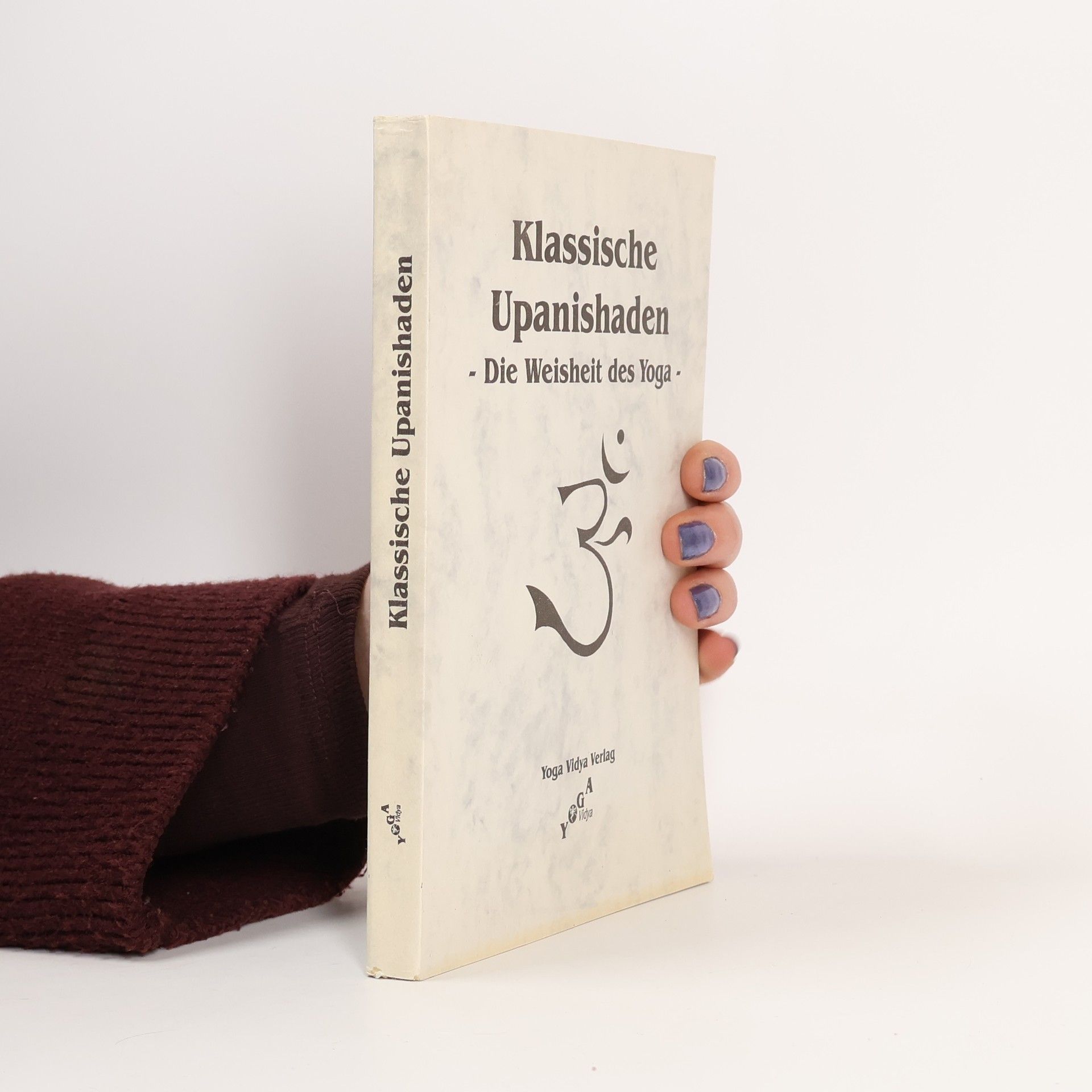Exploring the intersections of philosophy, this work defends Shankara's Advaita Vedānta alongside the Greek Idealism of Parmenides and Plato. Deussen identifies a common theme in these philosophies: the distinction between the world of appearances and Ideal Reality, paralleling Kant's concept of 'things in themselves.' He critiques the evolution of these ideas, noting a decline in the original Vedic and Upanishadic perspectives and the misinterpretation of Kant's insights by later thinkers, except for Schopenhauer, who grasped the notion of the world as a representation shaped by the intellect.
Paul Deussen Boeken






Allgemeine Geschichte der Philosophie mit besonderer Berücksichtigung der Religionen
1. Band, 2. Teil - Die Philosophie der Upanishads
- 418bladzijden
- 15 uur lezen
Paul Deussen war ein bedeutender deutscher Philosophie-Historiker und Indologe, der als erster westlicher Gelehrter das indische Denken gleichwertig zur abendländischen Philosophie stellte. Er gründete die Schopenhauer-Gesellschaft und hatte enge Verbindungen zum indischen Philosophen Vivekananda. Deussens Werk hebt die Relevanz und den Einfluss der indischen Philosophie auf das westliche Denken hervor und trägt zur interkulturellen Verständigung zwischen diesen Traditionen bei.
Allgemeine Geschichte der Philosophie mit besonderer Berücksichtigung der Religionen
1. Band, 3. Teil - Die nachvedische Philosophie der Inder nebst einem Anhang über die Philosophie der Chinesen und Japaner
- 748bladzijden
- 27 uur lezen
Paul Deussen, ein bedeutender deutscher Philosophie-Historiker und Indologe, wird als Pionier angesehen, der indisches Denken gleichwertig zur abendländischen Philosophie stellte. Als Gründer der Schopenhauer-Gesellschaft und enger Vertrauter von Vivekananda prägte er maßgeblich die westliche Rezeption östlicher Philosophie. Seine Arbeiten fördern das Verständnis und die Wertschätzung der indischen Philosophie im Westen und zeigen die tiefen Verbindungen zwischen verschiedenen philosophischen Traditionen auf.
Allgemeine Geschichte der Philosophie mit besonderer Berücksichtigung der Religionen
2. Band, 1. Teil - Die Philosophie der Griechen
- 544bladzijden
- 20 uur lezen
Paul Deussen war ein bedeutender deutscher Philosophie-Historiker und Indologe, der als erster westlicher Gelehrter indisches Denken gleichwertig zur abendländischen Philosophie stellte. Er war Gründer der Schopenhauer-Gesellschaft und hatte eine enge Beziehung zu dem indischen Philosophen Vivekananda. Deussens Werk und seine Ansichten trugen maßgeblich dazu bei, das Verständnis und die Wertschätzung für indische Philosophien im Westen zu fördern. Sein Einfluss reicht weit über seine Zeit hinaus und prägt bis heute die interkulturelle Philosophie.
Allgemeine Geschichte der Philosophie mit besonderer Berücksichtigung der Religionen
2. Band, 2. Teil - die biblisch-mittelalterliche Philosophie
- 548bladzijden
- 20 uur lezen
Paul Deussen wird als bedeutender deutscher Philosophie-Historiker und Indologe vorgestellt, der den Dialog zwischen indischem und abendländischem Denken förderte. Als Gründer der Schopenhauer-Gesellschaft und durch seine Bekanntschaft mit dem indischen Philosophen Vivekananda prägte er die Wahrnehmung indischer Philosophie im Westen. Deussen gilt als der erste westliche Gelehrte, der die indische Denkweise gleichwertig zur abendländischen Philosophie stellte, was einen wichtigen Beitrag zum interkulturellen Verständnis leistete.
Allgemeine Geschichte der Philosophie mit besonderer Berücksichtigung der Religionen
1. Band, 1. Teil - Allgemeine Einleitung und Philosophie des Veda bis auf die Upanishads
- 380bladzijden
- 14 uur lezen
Paul Deussen war ein bedeutender deutscher Philosophie-Historiker und Indologe, der als erster westlicher Gelehrter das indische Denken gleichwertig zur abendländischen Philosophie stellte. Er war Gründer der Schopenhauer-Gesellschaft und hatte eine enge Verbindung zu dem indischen Philosophen Vivekananda. Deussens Werk und seine Ansichten trugen dazu bei, die westliche Wahrnehmung des indischen Denkens nachhaltig zu beeinflussen und zu erweitern.
Allgemeine Geschichte der Philosophie mit besonderer Berücksichtigung der Religionen
2. Band, 3. Teil - Die neuere Philosophie von Descartes bis Schopenhauer
- 620bladzijden
- 22 uur lezen
Paul Deussen war ein bedeutender deutscher Philosophie-Historiker und Indologe, der die indische Philosophie in den westlichen Diskurs einführte. Er gilt als erster westlicher Gelehrter, der das indische Denken gleichwertig zur abendländischen Philosophie stellte. Seine Bekanntschaft mit dem indischen Philosophen Vivekananda und die Gründung der Schopenhauer-Gesellschaft unterstreichen seinen Einfluss auf die philosophische Auseinandersetzung zwischen Ost und West. Deussens Werk trägt zur Verständigung und zum interkulturellen Dialog bei.
Erinnerungen an Friedrich Nietzsche
- 128bladzijden
- 5 uur lezen
Die enge Beziehung zwischen Paul Deussen und Friedrich Nietzsche, die bereits in ihrer Schulzeit begann, bildet den Kern dieses Erinnerungsbuches. Deussen, ein Indologe, beeinflusste Nietzsches Denken maßgeblich, indem er ihn mit Schopenhauers Werk und dessen Verbindungen zur altindischen Philosophie vertraut machte. Die lebendige und authentische Schilderung ihrer Freundschaft und der intellektuellen Auseinandersetzungen bleibt bis zu Nietzsches Zusammenbruch spürbar und bietet einen einzigartigen Einblick in das Leben und Denken beider Denker.